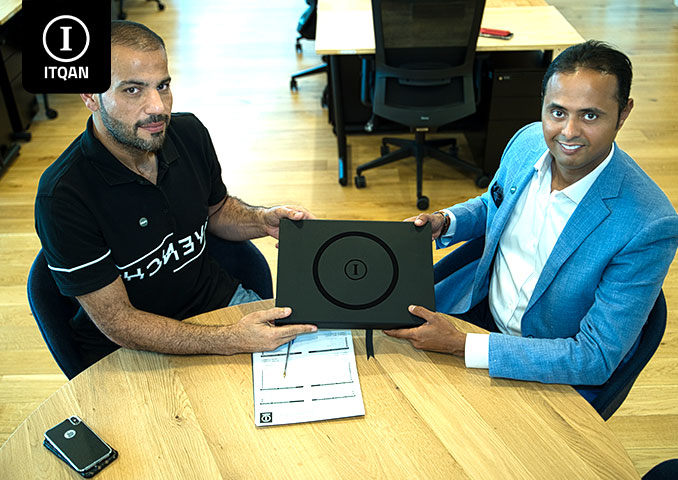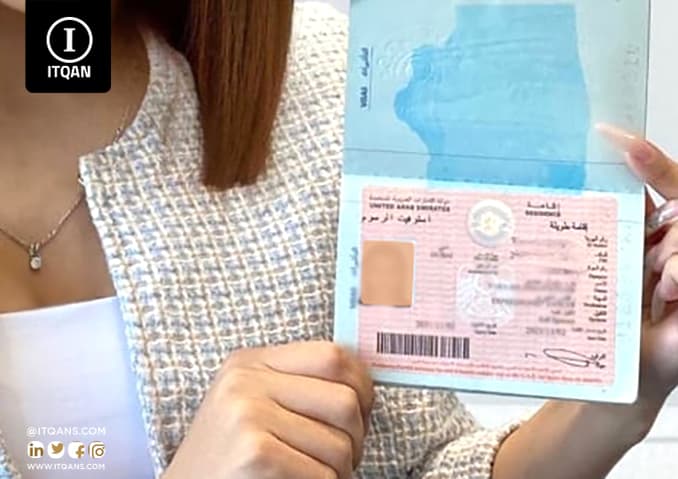The commercial registry in Dubai is one of the basic pillars that contribute to strengthening the local economy and providing a suitable environment for business. The commercial registry represents the official document that proves the legal existence of the commercial entity and grants it legitimacy to operate within the framework of the laws and regulations in force in the Emirate of Dubai. The commercial registry is of great importance, as it is considered a regulatory tool that contributes to protecting the rights of companies and consumers, and enhancing transparency and credibility in commercial transactions.
Dubai is an ideal business destination thanks to its advanced infrastructure, strategic location, and flexible economic policies that facilitate business establishment and growth. Commercial registration in Dubai is not just a legal procedure, but rather a strategic step that enables companies to benefit from many advantages and benefits. These benefits include the ability to open bank accounts, obtain financing, participate in government tenders and contracts, and benefit from investment incentives offered by the government.
The procedures for opening a commercial registry in Dubai include several steps, starting with choosing the appropriate type of company and determining the trade name, through preparing the required documents such as the registration application form, copies of passports, and the lease contract, all the way to submitting the application to the Dubai Economic Development Department (DED) and paying the required fees. The types of companies that can be registered in Dubai vary between sole proprietorships, limited liability companies, joint stock companies, and branches of foreign companies.

Dubai commercial register
جدول المحتوى
ToggleSteps necessary to register a company in the commercial registry in Dubai
To register a company in the Dubai Commercial Registry, you must follow the following steps:
- Choosing the type of company: You must first choose the appropriate type of company, such as a sole proprietorship, joint stock company, or limited liability company, and determine the main activity of the company.
- Determine the business name: You must choose a unique business name and ensure that it complies with local regulations. You can check the availability of the name and reserve it through the Dubai Department of Economic Development (DED) portal.
- Preparing the required documents: Documents such as corporate registration form, copies of passports of shareholders and directors, and a copy of the lease contract or ownership certificate for the place where business activities will take place must be prepared.
- Visit the Dubai Department of Economic Development (DED): New registrants must visit one of the DED offices to submit the application and submit the required documents.
- Payment of fees: The registration fees and administrative fees required to process the application must be paid.
- Verification and approval: Documents and documents are reviewed by DED, and if the application is approved, the commercial register and trade license will be issued.
- Receiving the license and commercial register: Once approved, you can receive the commercial register and commercial license from the DED office or through email as agreed upon.
- Registering the company with the Chamber of Commerce: After receiving the commercial register and license, the company must be registered with the Dubai Chamber of Commerce and Industry to obtain the final operating license.
Economy in the Emirates
The economy in the UAE is considered among the most diversified and dynamic economies in the Middle East. Here are some key points about the economy in the UAE:
- Economic Diversity: The UAE economy depends on diverse sources such as oil and gas, tourism, trade, financial services, and manufacturing, which reduces dependence on oil.
- Economic growth: The UAE is showing strong rates of economic growth, benefiting from significant investments in infrastructure and sustainable development.
- Economic policies: The UAE relies on advanced economic policies to attract foreign investments and stimulate the private sector, which enhances economic growth.
- Technology and innovation: The UAE seeks to enhance innovation and technology through initiatives such as the “knowledge economy” and “artificial intelligence,” to enhance its competitive capabilities at the global level.
- tourism: The tourism sector is one of the most important economic sectors in the Emirates, as Dubai and Abu Dhabi attract tourists from all over the world thanks to their tourist attractions and cultural and entertainment events.
- International Trade: The UAE is a global center for international trade, with large seaports and international airports facilitating import and export operations.
- Finance and Banking: The UAE has a strong and advanced financial sector, with a large number of local and international banks and other financing institutions.
Documents required to renew the license of a company registered in the commercial registry in Dubai
To renew the license of a company registered in the Dubai Commercial Registry, you usually need to submit a set of documents and information. Here are the basic documents you may need:
- License renewal form: You must fill out the license renewal form, which can be obtained from the Dubai Department of Economic Development (DED) website or through the electronic portal.
- Copy of current trade licence: You must provide a copy of the current business license that needs to be renewed.
- Financial Statements: You may need to provide a recent financial statement that shows the current financial condition of the company.
- Updating the lease contract or ownership certificate: If the company’s address changes, you may need to update the lease or certificate of ownership for the new location.
- Payment of the required fees: You must pay the fees required for the renewal process, which include license renewal fees and other administrative fees, if any.
- Update company information (if necessary): If there are changes to company information such as stock composition or ownership structure, you may need to update this information as well.
- Submit application on time: Ensure that documents are submitted and fees are paid on time as per the conditions required by DED.
Expected fees for registering a company in the Dubai Commercial Registry
The costs of registering a company in the Dubai Commercial Register vary based on the type of company, size of capital, and commercial activity. Here are some expected fees you may pay when registering your company:
- Basic registration fees: These fees range according to the type of company and include application fees and final registration fees.
- Annual licensing fees: These fees are renewed annually and depend on the type of company and the size of capital.
- Additional Service Fees: There may be additional fees for services such as amending the rental contract or amendments to company documents.
- Legal Consultation Fee: In some cases, you may need a legal consultancy to provide legal advice during the registration process.
- Legal Agent Services Fee: If you use a legal agent to represent you during the registration process, there may be a fee for legal agent services.
- Additional Service Fees: These fees may relate to services such as issuing certificates, information updates, transfer of ownership, etc.
Ongoing legal obligations after opening the commercial register
After opening a commercial registration in Dubai , companies must adhere to a number of ongoing legal obligations to ensure compliance with local laws and regulations. These obligations include the following:
- Renewal of the commercial license: The commercial license must be renewed annually by submitting a renewal application and paying the required fees. You must make sure to submit all necessary documents such as an updated copy of the lease contract and recent financial statements.
- Tax compliance: Tax obligations include registering the company for Value Added Tax (VAT) if revenues exceed the minimum threshold set by the Federal Tax Authority. Tax returns must be submitted and taxes due must be paid on the specified dates.
- Maintaining financial records: Companies must maintain financial records and accounting data for a specific period of time in accordance with local laws, in order to submit them upon request from the competent authorities.
- Compliance with labor laws: You must adhere to UAE labor laws, including employment contracts, pay salaries on time, provide a safe and healthy work environment, and ensure employee rights.
- Report changes: If any changes occur in the company’s structure or basic information, such as changing partners or amending business activity, these changes must be reported to the Department of Economic Development and the commercial registry updated.
- Data protection: Adherence to personal data protection laws and ensuring that customer and employee data are not misused.
- Inspection and oversight: Allowing competent government agencies to conduct periodic inspections to ensure compliance with applicable laws and regulations.
- Annual Reports: Submitting the required annual reports to the competent authorities, which include financial statements and performance reports.
- Compliance with sector-specific requirements: Some sectors may have additional special requirements, such as obtaining additional permits or complying with certain health or environmental standards.
- Registration with the Dubai Chamber of Commerce: Membership in the Dubai Chamber of Commerce and Industry must be renewed annually as part of legal compliance requirements.
- Insurance: The necessary insurance must be provided, such as health insurance for employees and commercial property insurance.
At the conclusion of this article, it becomes clear that the commercial registry in Dubai represents the backbone of every commercial activity that aims to stabilize and expand in this vital economic emirate. Obtaining a commercial register is essential for companies and individuals wishing to do business in Dubai, as the commercial register provides a legal and regulatory framework that enhances transparency and integrity in business operations.
The importance of the commercial registry in Dubai includes documenting necessary information for companies, such as the company name, its business activity, and the legal responsibilities of the founders, which helps protect the rights of interested parties and enhance confidence in the commercial market. In addition, the Commercial Register contributes to enhancing Dubai’s attractiveness as a major center for global investments, by providing a stimulating commercial environment that enhances opportunities for growth and innovation.
The most important frequently asked questions about Dubai commercial registration
What is the commercial register in Dubai?
The commercial registry in Dubai is an official document that proves the existence of a commercial entity and grants it legitimacy to operate in the Emirate of Dubai in accordance with local laws and regulations.
What types of companies can be registered in Dubai?
Several types of companies can be registered in Dubai, including sole proprietorships, limited liability companies, joint stock companies, and branches of foreign companies.
What benefits does commercial registration in Dubai provide?
The commercial register allows companies to benefit from several advantages, such as obtaining work permits, participating in government tenders, obtaining financing from banks, and benefiting from investment incentives provided by the government.
What are the continuing legal obligations after opening the commercial register?
Legal obligations include renewing the business license annually, complying with labor laws, complying with taxes including value-added tax (VAT), and maintaining accurate financial records.
















